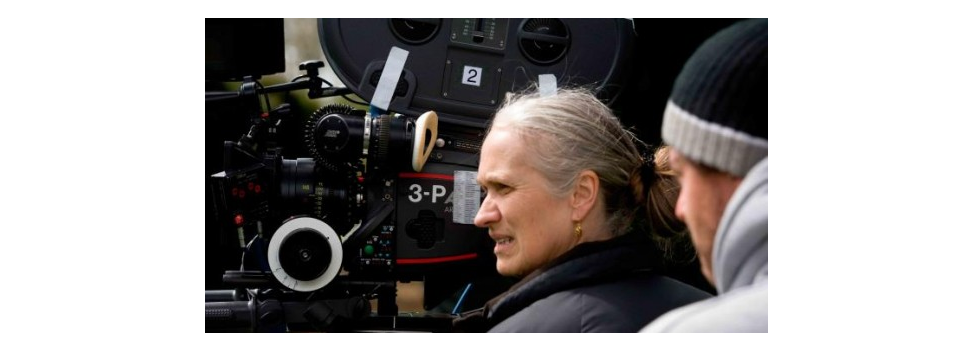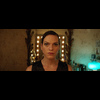Cannes Film Festival - Female Directors: A 2014 Space Oddity
CANNES FILM FESTIVAL, FRANCE – At the onset of the most prestigious international film festival in the world, Palme d’Or jury president, Jane Campion was quoted “the way women love women is different to the way men love women: women love women who feel real, who are complicated, and not just sex objects. The woman characters in “The Piano” are created by a woman and Ada was my heroine. That’s the reason it had the impact it did.” Having these convictions is commendable and appropriate for her additional commentary on male domination of the movie business with, “Time and time again, we don’t get our share of representation… the guys get to eat all the cake.” “It does feel very undemocratic and women do notice…”
Just as media outlets vie for their audiences (and followers), reports on world politics and conflicts sensationalize acts of violence and war. In this particular article Jane’s comment is underscored and stoked as “Gender politics flaring at the opening of the 67th Cannes Film Festival.” How unfortunate that such an incendiary headline and interpretation is usually attributed to a male reporter/correspondent/writer, thus compelling Jane to defend her statement explaining that she is not against male filmmakers, but the obvious imbalance of representation within high profile film festivals’ filmmaker awards that reward the lopsided filmmaking industry.
Alice Guy Blache, owner and operator, built Solax Studios in Fort Lee, New Jersey (1912).
It was not always this way. A century ago women were pioneers in early cinema. They stepped up the plate taking the then untested photographic, motion picture and film projection technology and infused it with storytelling techniques that created films attracting audiences hungry for motion picture narratives, a new form of entertainment at the time. First woman filmmaker Alice Guy Blache enthusiastically stated how directing – narrative instead of everyday life verite, actors to act naturally instead of staged soliloquy, on real location settings instead of unventilated and hotly lit studios – was perfectly suited for women naturally gifted with multitasking abilities and a unique perspective. Women flooded the industry as writers, editors, location scouts, costume and set production designers, but as the entertainment business became bigger and more lucrative where the masculine realm views attainment as the ultimate call to life, women were eventually pushed out of every major position above the line and relegated to subordinate positions behind the man in charge.
Again in the article, Jane said “she was told by Cannes selectors that 93 per cent of the films submitted to the fest were made by men, so there was bound to be an imbalance.” She added, “She understands this and doesn’t resent the success of male filmmakers, but there is something that women are thinking and doing that we don’t get to know enough about.” Stories from a woman’s perspective are in many critically acclaimed films and box office successes including (some of my favorites) The Piano, Italian for Beginners, Virgin Suicides, High Art, Lost in Translation, The Notorious Bettie Page, Julia and Julia, Winter’s Bone, The Kids Are All Right, Twilight. Frozen, co-directed by Jennifer Lee and Chris Buck was not only awarded an Oscar for Best Animated Feature but also reached $1 billion in worldwide ticket sales. Is it a fluke? How odd. Indeed.
What would be so odd about that? Yet, the oddity of being a female director was remarked upon so much that Lee said in a quote to the Los Angeles Times, “The question I’ve been asked most is: ‘What is the hardest part about being a female director?’… I confess that I’m ready, so very ready to get back to the freedom of the story room– tough notes and all, where it’s not about me being a ‘female’ director. It’s not about me being only 5-foot-3. In the story room, my boobs fit just fine, because in the story room, it’s only the size of my imagination that matters.” It’s no wonder there are women– particularly a generation brought up to believe they can be anybody and do anything– inexplicably labelled “odd” and therefore not wanting to be known as a “female director.”
Women want to be admired and appreciated in a spotlight for their work and not gawked at as a sideshow oddity, branded a fluke and measured for their physical being. It’s only when the perception changes–by women in the director’s chair successes– and leadership taking a stand. Cate Blanchett, upon receiving the Oscar for Best Actress remarked, “To those of us in the industry still foolishly clinging to the idea that films with women at the center are ‘niche’ experiences. They are not. Audiences want to see them, and, in fact, they earn money. The world is around people” that things will change. Just as Alice Guy Blache did a century ago, there’s a way women view and interpret human stories, not for better or for worse, but uniquely and differently, exploring and uncovering the feminine heroic, integrating a balance between the masculine and feminine sides and achieving an unmeasured equality for all.
Jane Campion, along with other women in the director’s chair, understands the power of storytelling and leads the way for filmmaker recognition equality in the 21st century. Perhaps the media will finally stop provoking non existent gender wars, but until then, the general public needs to be reminded. As a “kiwi” (New Zealander), the renowned filmmaker and the only woman in Cannes Film Festival’s history to win the Palme d’Or for The Piano (1993) noted that just two of the 18 films in competion that she and her jury will judge were directed by women. The nine-member jury with five women and four men includes fellow directors Sofia Coppola (U.S.), Jia Zhangke (China) and Nicolas Winding Refn (Denmark), actors Willem Dafoe (U.S.), Gael Garcia Bernal (Mexico), Carole Bouquet (France), Jeon Do-yeon (Korea) and Leila Hatami (Iran). The winner for the Palme d’Or will be announced on May 24, 2014. Indeed.
Christina Kotlar is a writer and filmmaker with more thoughts on the subject of Women in the Director’s Chair at filmfestivalreviews.com
Photo courtesy of DoddleNEWS








